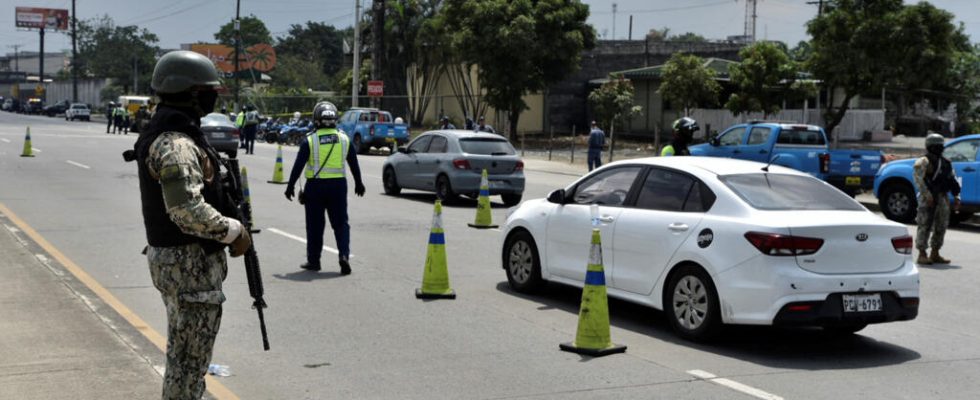This Wednesday, January 24, the Ecuadorian government relaxed the curfew imposed until now from 11 p.m. to 5 a.m. throughout the country, in war against gangs now considered terrorists. For Quito, the reduction in the number of homicides allows this reorganization of the state of emergency but not everywhere and especially not in Guayaquil, the second city of the Republic of Ecuador and a hub for trafficking.
2 mins
With our correspondent in Ecuador, Eric Samson
The massive presence of soldiers and police in the streets has reduced the number of daily homicides from 27 to 11, according to the President of the Republic, Daniel Noboa. In the 160 cantons where the risk is considered “low”, the curfew is lifted. In those where it is “average”, the population will stay at home from 2 a.m. to 5 a.m., which will give some breathing room to the restaurant and nightlife sectors. But where the risk is “high”, the curfew is reduced by one hour, from midnight to 5 a.m.
Guayaquil, city of all traffic
The important city of Guayaquil remains in the red zone, which does not surprise Pedro Granja, director of the Latin American Institute of Anti-Mafia Studies: “The crime rate in Guayaquil has increased by 30%. In Ecuador, there are 44 violent deaths per 100,000 inhabitants, but in Guayaquil there are 115.»
And Pedro Granja knows violence. Four months ago, a bomb was planted outside the gate of his institute, forcing him to send his family abroad. And if the security situation remains tense in Guayaquil, it is because the city is a hub for drug trafficking: “Guayaquil has a geography that makes it possible to use large-tonnage ships to export huge quantities of drugs to Rotterdam, Antwerp or even Gioaia Tauro, an Italian port in Calabria controlled by the ‘Ndrangheta mafia.»
While American military aid has just arrived, the armed forces continue to search the ten most violent prisons in the country from where they remove weapons, drugs, explosives, cell phones and internet cables.
Read alsoGaspard Estrada: drug trafficking in Latin America is a real “challenge” for States and institutions
